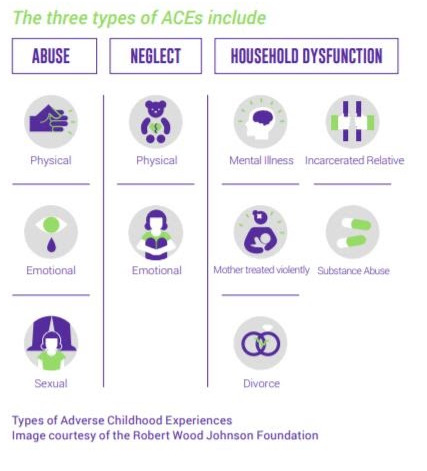Addressing the Health Consequences of Childhood Trauma
Highlights

Childhood traumas known as Adverse Childhood Experiences (ACES) can lead to toxic stress and lasting health consequences throughout a person’s lifetime. A study by the Center for Youth Wellness released in partnership with PHI found that nearly 62% of Californians suffered one or more ACES during their childhood—with one in six experiencing four ACES or more. The study's author, now serving as California's first surgeon general, has made eliminating ACES and toxic stress key priorities for the state.
62% of Californians experienced one or more Adverse Childhood Experiences (ACES) during their childhood
1 in 6 Experienced four or more ACES
Public health and medical professionals refer to certain childhood traumas as Adverse Childhood Experiences, or ACES. These experiences have profound effects on a child’s developing brain and body, and can lead to toxic stress and lasting health consequences throughout a person’s lifetime.
A November 2014 study by the Center for Youth Wellness, released in partnership with PHI, found that nearly 62% of Californians suffered one or more ACES during their childhood—with one out of six experiencing four ACES or more. The report, “A Hidden Crisis: Findings on Adverse Childhood Experiences in California” outlines the strong correlation between adverse childhood experiences with poor health, behavioral problems and harmful social outcomes later in life. The study found that the more ACES a child experiences, the higher their risk for chronic disease as an adult.
“Addressing childhood trauma isn’t just a moral mandate, it’s a health imperative—for our children today, and for the adults they will become.” Mary A. Pittman, President and CEO of the Public Health Institute.
The report was shared with more than 200 policy and nonprofit leaders, medical and health professionals, and education and child welfare advocates at the first-ever statewide summit on the issue, and helped national, state and local leaders develop an agenda to reduce the impact of ACES. Dr. Nadine Burke Harris, lead author of the study and CEO and founder of the CYW at the time of the report, became California’s first surgeon general in 2019. Dr. Harris has designated eliminating ACES and toxic stress as key priorities, with the goal of reducing them by half in one generation.
 ACES measured in the study include physical, emotional and sexual abuse; physical and emotional neglect; and household dysfunctions such as mental illness, family member incarceration, domestic violence, substance abuse and divorce.
ACES measured in the study include physical, emotional and sexual abuse; physical and emotional neglect; and household dysfunctions such as mental illness, family member incarceration, domestic violence, substance abuse and divorce.
The report’s findings indicate that, compared to people with no ACES, those reporting four or more ACES are
- 2.4 times more likely to have chronic obstructive pulmonary disease
- 1.9 times more likely to have asthma
- 1.7 times more likely to have kidney disease
- 1.5 times more likely to have a stroke
- 5.1 times more likely to suffer from depression
- 4.2 times more likely to be diagnosed with Alzheimer’s or dementia
- 2.9 times more likely to currently smoke
- 3.2 times more likely to engage in binge drinking
- 3.3 times more likely to engage in risky sexual behavior
- Nearly 12 times more likely to be the victim of sexual violence (or forced sexual encounters) after the age of 18.
- 21 percent more likely to be below 250 percent of the Federal Poverty Level
- 27 percent more likely to lack a college degree
- 39 percent more likely to be unemployed
- 50 percent more likely to lack health insurance
Find the report and more information here.
Work With Us
You change the world. We do the rest. Explore fiscal sponsorship at PHI.
Support Us
Together, we can accelerate our response to public health’s most critical issues.
Find Employment
Begin your career at the Public Health Institute.
